While folklore holds that spotting a circling vulture is a bad omen, turkey vultures actually perform a vital function within their ecosystem: Clean-up Crew!
Turkey vultures specialize in eating carrion (dead animals). They have a well-developed sense of smell that they use to find food. Their heads are naked so that they can reach inside a carcass without contaminating their feathers. They usually feed alone, but if a vulture sees others of its kind feeding on a carcass, it may fly down to join them.
Like crows, turkey vultures roost together, often gathering in trees by the dozen to sleep for the night, which can be a little eerie if you don’t know that these beneficial birds are harmless to humans. Here are five photos of turkey vultures from our Picture This: Your Great Outdoors photo contest.
All October long, leading up to Halloween, we’re spotlighting wildlife that’s “spooky,” “creepy,” and goes “bump” in the night with our Take 5 posts. Keep an eye out for next week when we tackle the creepiest crawly of them all: spiders!
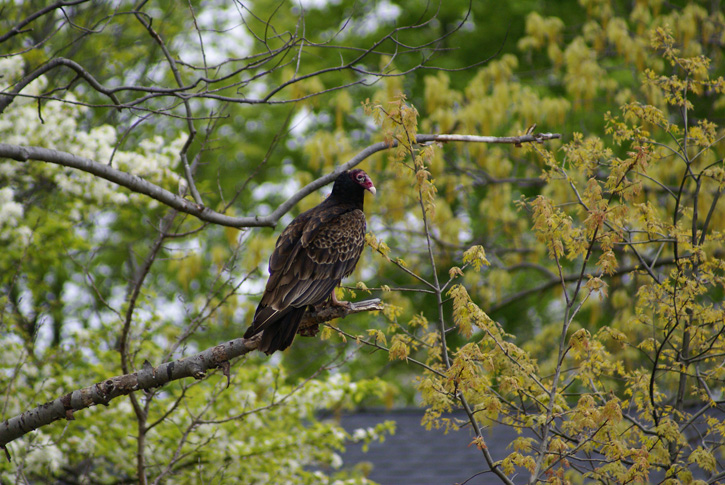
Turkey Vulture © Phyllis Tarascio
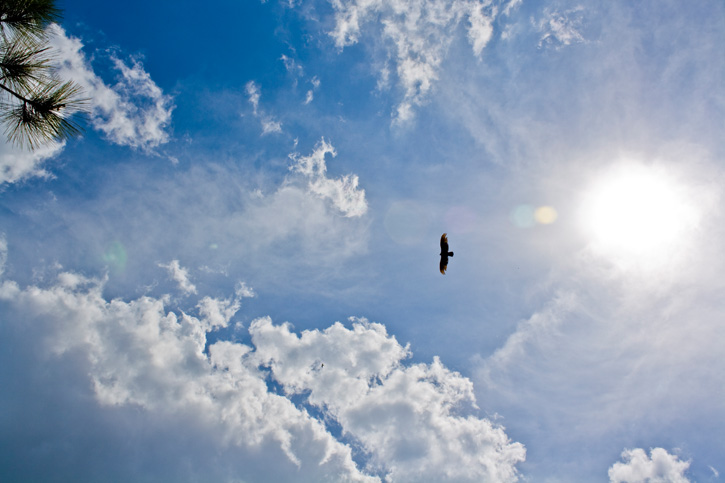
Soaring Turkey Vulture © Sherrelle Guyette
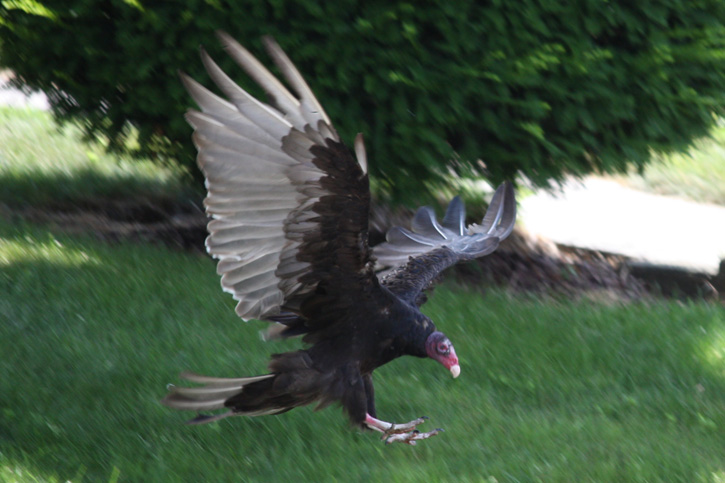
Turkey Vulture © Christine Young
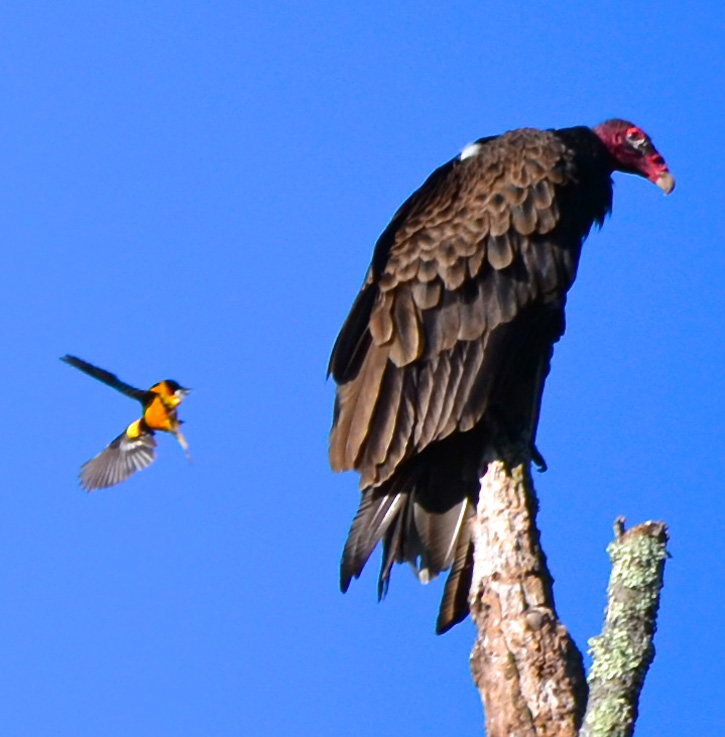
Turkey Vulture © Patrick Waggett
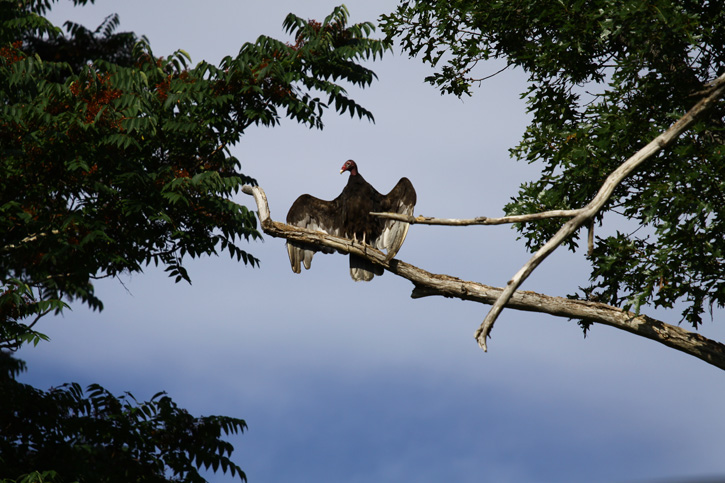
Turkey Vulture © Paul Bedard


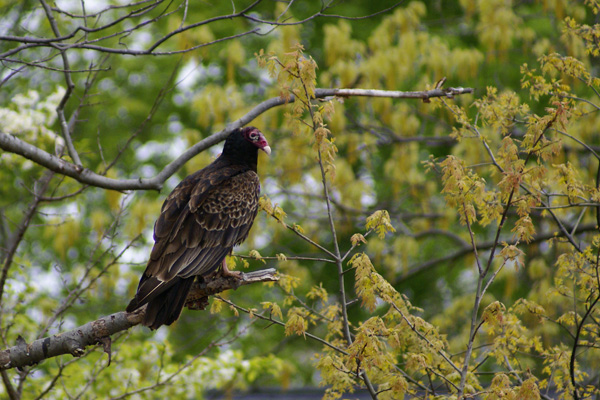
they might be ugly, but i like them. Nice to watch them soar overhead
I also saw my first back vulture this summer (in Webster MA, and later another in Millbury MA)